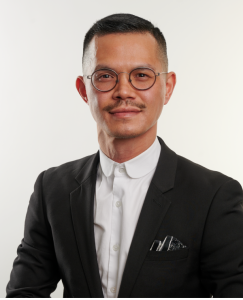Growing Up in Uncertain Times
Title: Growing Up in Uncertain Times
Date: Monday, November 13, 2023
Time: 5:30 pm – 8:30 pm ET.
Reception: 5:30–6:30 p.m. | Lecture: 6:30–7:15 p.m.
Moderated discussion: 7:15–8:00 p.m.
Location: Tate-Turner-Kuralt Auditorium
Location: Tate-Turner-Kuralt Auditorium, 1st Floor (Free Parking at Nash Lot)
Format: Hybrid (Registration Link)
- Livestream via Zoom, or
- In-person: UNC School of Social Work, 325 Pittsboro Street, Chapel Hill, NC 27516
Fees: Free
CE Credit: 2 CE credits
CE policies and procedures: Link
Descriptio n: This lecture will address the critical question of how the world’s largest generation of adolescents and young people will thrive in an increasingly complex global landscape. The world’s largest-ever generation of adolescents and young people faces an increasingly complex global landscape against rising social and economic inequality. These young people are grappling with building back from COVID-19, the intensifying climate crisis, rising conflicts, and swiftly changing tech and digital spaces, among other issues. Young people need skills, knowledge, and access to thrive under these challenges. For example, as the economy shifts towards green jobs, we need to find ways to educate our in-school and out-of-school youth and break barriers in STEM to ensure an equitable transition to a green economy by building new green skills for young women and girls. Dr. Ngo will discuss how now is the time to step up and support adolescents and young people. He will discuss potential pathways for the 1.8 billion youth across the globe. The lecture provides practical examples of how the Population Council has implemented and tested a girl-centered programming model in different settings that focused on supporting girls in developing the skills, knowledge, and abilities they need to become healthy, empowered women. He will demonstrate how they have focused on delivering a sex education, financial basics, human rights, and life skills curriculum and sometimes layer on other programming, such as a cash transfer program or community conversations involving family members, to facilitate a more supportive environment for girls to develop agency and empowerment and avert outcomes like child marriage and unwanted pregnancy.
n: This lecture will address the critical question of how the world’s largest generation of adolescents and young people will thrive in an increasingly complex global landscape. The world’s largest-ever generation of adolescents and young people faces an increasingly complex global landscape against rising social and economic inequality. These young people are grappling with building back from COVID-19, the intensifying climate crisis, rising conflicts, and swiftly changing tech and digital spaces, among other issues. Young people need skills, knowledge, and access to thrive under these challenges. For example, as the economy shifts towards green jobs, we need to find ways to educate our in-school and out-of-school youth and break barriers in STEM to ensure an equitable transition to a green economy by building new green skills for young women and girls. Dr. Ngo will discuss how now is the time to step up and support adolescents and young people. He will discuss potential pathways for the 1.8 billion youth across the globe. The lecture provides practical examples of how the Population Council has implemented and tested a girl-centered programming model in different settings that focused on supporting girls in developing the skills, knowledge, and abilities they need to become healthy, empowered women. He will demonstrate how they have focused on delivering a sex education, financial basics, human rights, and life skills curriculum and sometimes layer on other programming, such as a cash transfer program or community conversations involving family members, to facilitate a more supportive environment for girls to develop agency and empowerment and avert outcomes like child marriage and unwanted pregnancy.
Bio: Thoai D. Ngo, Ph.D., MHS, is the Vice President of Social and Behavioral Science Research at the Population Council. He is also the Founding Director of the Girl Innovation, Research, and Learning (GIRL) Center. At the Population Council, he directs global research efforts to advance four intersecting goals: 1) sexual and reproductive health, rights, and choices for all, 2) adolescent transitions, 3) gender equality and equity, and 4) climate justice. Prior to joining the Population Council, Ngo was the Senior Director and Vice President of Research at Innovations for Poverty Action (IPA), a nonprofit that evaluates solutions for alleviating poverty and addressing developmental problems. There, he led a department of more than 500 research staff conducting more than 250 impact evaluations of programs and policies to tackle global poverty issues. He also served as Head of Global Research at MSI Reproductive Choices, a non-governmental organization that delivers sexual and reproductive health services in 42 countries, where he was instrumental in building its international research department. Ngo was also a researcher at Johns Hopkins University and a research fellow at the National Institutes of Health. In 2017, Ngo was recognized as one of the 120 Under 40 leaders making a difference in reproductive health worldwide.
Learning Objectives: At the end of the special lecture, participants will be able to:
- Identify at least three adverse effects of the intensifying climate crisis, rising conflicts, and swiftly changing tech and digital spaces for young people.
- Identify and explain at least one type of access, skill, and knowledge young people need to thrive in the increasingly complex global landscape.
- Describe the potential structural pathways that could enhance young people’s ability to thrive in the transition to a green economy.
References:
- Ngo, T. D. (2023). Demographic trends and population health: Tackling inequality in a world of eight billion people. BMJ Glob Health, 8(4): e012137. http://dx.doi.org/10.1136/bmjgh-2023-012137
- Akwara, E., Pinchoff, J., Abularrage, T., White, C., & Ngo, T. (2023). The Urban Environment and Disparities in Sexual and Reproductive Health Outcomes in the Global South: a Scoping Review. J Urban Health 100, 525–561 https://doi.org/10.1007/s11524-023-00724-z
- Weber, A. M., Cislaghi, B., Meausoone, V., et al., (2019). Gender norms and health: insights from global survey data, The Lancet: Gender Equality, Norms, and Health, 393(10189), P2455-https://doi.org/10.1016/S0140-6736(19)30765-2
- Pike I., Kraus-Perrotta C., & Ngo T.D. (2023). A scoping review of survey research with gender minority adolescents and youth in low and middle-income countries. PLoS ONE, 18(1): e0279359. https://doi.org/10.1371/journal.pone.0279359
- Ngo, T., & Richard, d. (2022). COVID-19 hospitalizations in the United States: Where is the data on race? BMJ Global Health Blogs, 22 March.
